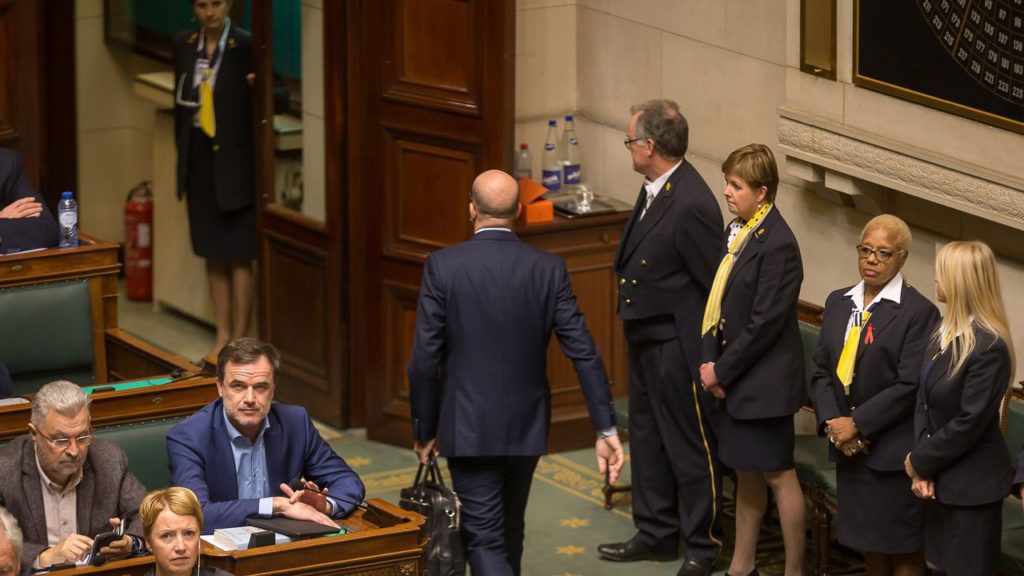Prime minister Charles Michel last night resigned his government and travelled to Laeken to announce his decision to the king. Michel’s decision came after ten days of government crisis following the departure of coalition partner N-VA from the government over support for the United Nations pact on migration, leaving Michel in charge of a minority government.
Michel yesterday tried to rally the support of opposition greens and socialists with a package of proposals they could get behind. Greens spokesperson Kristof Calvo said there were some interesting proposals in the package, but sufficient support for the whole could not be found.
Michel, as convention requires, placed his mandate at the disposal of the king, but the matter does not end there. The king is not automatically obliged to accept the resignation as a fait accompli. And as it happens, circumstances are in favour of his taking his time. Parliament is now in recess for the Christmas break, so no new business can be undertaken. The government would in any case have been working only on current affairs.
When the king makes his decision, he has the option of calling on Michel to lead a government of current affairs, which would simply administer the matters already decided by parliament until the elections due in May. If Michel declines, the king could nominate someone else. Alternatively, he could, according to most analysts, instruct the government to call an early federal election, sending the nation to the polls twice in less than six months (the May voting is also for regional and European elections).
One specialist, however, rules out the last possibility. Johan Vande Lanotte, former minister, former mayor of Ostend and constitutional law specialist, argues that advanced elections are only permissible in limited circumstances: if the government fails to carry its own motion of confidence or if a motion of no confidence is passed; if the Constitution is called into question; or if the parliament passes a motion for new elections by a substantial majority.
None of those is the case: Michel refused to table a motion of confidence in his government; the socialists announced a motion of no confidence, but Michel resigned before it could be voted; and the other two conditions have not been met before parliament rose for the recess.
The king now has time until the return of parliament in the New Year to make up his mind, and his Christmas break is likely to be filled with meetings with party leaders and others, each keen to help him come to a decision good for their party and/or for the country.
Charles Michel’s adventure now appears to be over as the most unlikely prime minister in recent history – the leader of the only French-speaking party in the government, who took over as PM when N-VA’s Bart De Wever chose to remain as mayor of Antwerp, and front-runner Kris Peeters had to take a step backwards so that his party could nominate Marianne Thyssen as EU Commissioner.
Alan Hope
The Brussels Times

